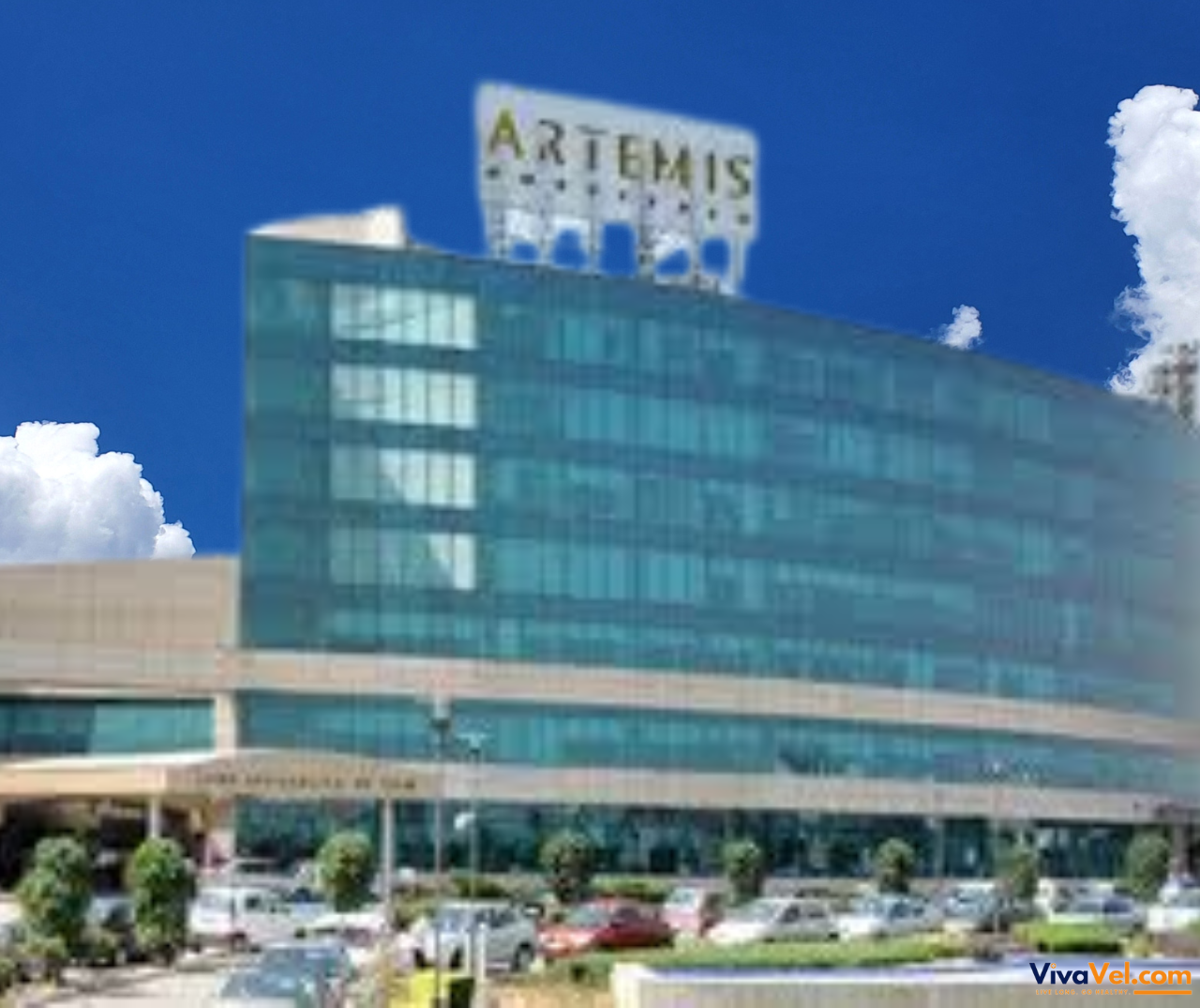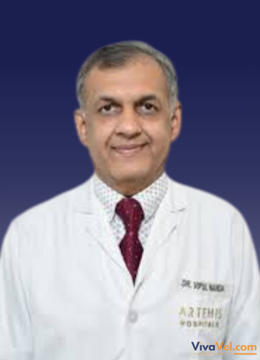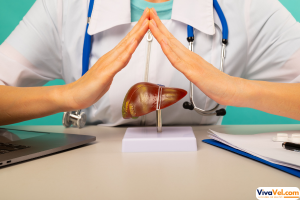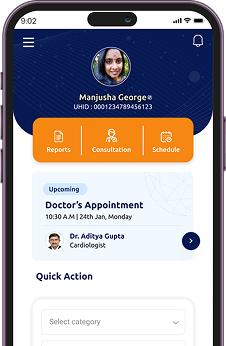About Autologous Bone Marrow Transplant (BMT)
The Autologous BMT package at Artemis Hospital, Gurgaon, under Dr. Vipul Nanda, costs ₹12-18 Lakhs ($14,500-$21,500) and takes 3-4 weeks. It includes pre-transplant evaluation, chemotherapy, stem cell collection, hospital stay, bone marrow infusion, ICU care (if needed), supportive therapy, and post-transplant monitoring. Exclusions: Extended ICU stay, long-term medications, and travel expenses.

Artemis Hospital
Artemis Hospitals Sector 51, Gurugram 122001 Haryana, India
2007
550
Multi Specialty
Address & Nearby Location
 Airport (Indira Gandhi International Airport)
Airport (Indira Gandhi International Airport)
Distance: 21.4 km | Duration: 58 min (by car)
 Railway (Gurgaon railway station)
Railway (Gurgaon railway station)
Distance: 12.7 km | Duration: 31 min (by car)
 Metro (Millenium City Center metro station)
Metro (Millenium City Center metro station)
Distance: 6.2 km | Duration: 17 min (by car)
Taxi: Available on-call
About Doctor

Dr. Vipul Nanda
Chief - Cosmetic & Plastic Surgery
Cosmetic & Plastic Surgery
23 Years Experience | 0 Surgeries & Procedures
Artemis Hospital
Dr. Vipul Nanda is one of India's leading Plastic & Cosmetic Surgeons with 23 years of experience. He completed his MBBS and M.S. from AIIMS, M. Ch from PGI Chandigarh, and MRCS from the UK. Dr. Nanda also undertook advanced cosmetic and plastic surgery fellowships in Spain, Japan, and the UK. He is a fellow of the British Association of Plastic Surgeons and a...
-
Established in 2007, Artemis Hospital is Gurgaon's first JCI and NABH-accredited Hospital.
-
It is spread across 9 acres and is a 400-plus-bed multi-specialty hospital in Gurgaon, India.
-
Artemis Hospital offers expertise in advanced medical and surgical interventions, and a comprehensive mix of inpatient and outpatient services.
-
It incorporates modern technology in the hands of renowned medical professionals to set new standards in healthcare.
-
The hospital practices and procedures adhere to global standards and are benchmarked against the best in the world.
-
The hospital is known for providing the best services in a warm, open, patient-centric environment, and its affordability contributes to its reputation as one of the best hospitals in the country.
-
Artemis Hospital encompasses a vast expanse of 9 acres and accommodates 550 beds, designed to ensure comprehensive medical care.
-
It has more than 65 ICU beds equipped with a high-frequency ventilator for the NICU, central venous pressure monitoring, intra-aortic balloon pump, PA-pressure monitoring, Ab4 monitoring, FlowTrac, bedside percutaneous tracheostomy, ECHO cardiology, brain hugger, etc., providing cutting-edge care for critically ill patients.
-
It has highly advanced equipment, which is as follows:
-
3 Tesla MRI
-
C7XR Optical coherence tomography
-
Holmium laser 100 watts with morcellator
-
HDR brachytherapy
-
Descemet's stripping endothelial keratoplasty
-
Intraoperative gamma & PET probe
-
Philips FD20/10 cath lab with stent boost technology
-
EnSite velocity cardiac mapping system
-
HIS - PACS enabled bedside patient records and images
-
NIM - ECLIPSE nerve monitoring system
-
Total knee replacement - navigation system
-
Transesophageal echocardiography (TEE)
-
Laser for TURP/MLS
-
Laser hair reduction (Pain-Free)
-
Cavitron ultrasonic surgical aspirator (CUSA)
-
M6 Cyberknife radiosurgery
-
-
Artemis Hospital leverages cutting-edge Da Vinci robotic surgery to perform a wide range of advanced robotic-assisted laparoscopic procedures for urology, urologic oncology, colorectal surgery, thoracic surgery, general surgery, and gynecologic surgery.
-
In addition, the hospital is committed to ensuring patient comfort by providing fully air-conditioned facilities and Wi-Fi-enabled rooms. It offers 24/7 emergency services with dedicated emergency rooms and air ambulances.
✔ Pre-Transplant Investigations & Tests
✔ Hospital Stay (Private BMT Unit)
✔ ICU Stay (if required)
✔ Stem Cell Mobilization & Collection
✔ Chemotherapy for Conditioning
✔ Bone Marrow Infusion
✔ Supportive Care (Blood Transfusions, Antibiotics, Pain Management)
✔ Post-Transplant Monitoring & Infection Control
✔ Physiotherapy & Nutritional Support
✔ One-Month Follow-Up Consultation
✘ Any Pre-Existing Medical Condition Management
✘ Additional ICU Stay Beyond Package Limit
✘ Unexpected Surgeries or Additional Procedures
✘ Long-Term Medications Post-Discharge
✘ Accommodation & Travel Expenses
- We understand that a comfortable stay is vital in the healing process. That’s why we offer a range of accommodation options to suit different preferences and budgets. Patients and their families can choose from hospital guest houses, well-rated hotels, or fully serviced apartments, all conveniently located near Artemis Hospital for easy access to medical care.
- For those seeking budget-friendly options, we have economical stays that offer essential amenities, while premium accommodations provide a more luxurious experience with additional services. Our team assists in booking and selecting the most suitable lodging based on your needs.
- We can arrange accommodations with kitchenettes and caregiver support for long-term stays to ensure a smooth and stress-free recovery journey.
📅 Day 1-7: Pre-Transplant Tests & Chemotherapy
📅 Day 8-10: Stem Cell Collection & Processing
📅 Day 11-12: Transplantation
📅 Day 13-30: Post-Transplant Recovery & Monitoring
A Bone Marrow Transplant (BMT) is a sophisticated medical procedure that involves replacing damaged or diseased bone marrow with healthy stem cells. The bone marrow is the soft, spongy tissue inside bones that creates blood cells. Conditions such as leukemia, lymphoma, multiple myeloma, and certain blood disorders can compromise it.
During a Bone Marrow Transplant, the patient's unhealthy bone marrow cells are first eradicated using high doses of chemotherapy or radiation therapy. This process creates space for the new, healthy stem cells to thrive. These healthy stem cells can be sourced from the patient (autologous transplant) or a compatible donor (allogeneic transplant) and are then introduced into the patient's bloodstream through an IV line, similar to a blood transfusion.
Once inside the body, the newly introduced stem cells migrate to the bone marrow, where they initiate the production of new, healthy blood cells. This regeneration process is crucial in helping the body generate an adequate supply of blood cells, fortifying the immune system, and improving overall health.
Patients undergoing Bone Marrow Transplants may need to be hospitalized for several weeks to monitor their recovery and closely minimize the risk of infections. Common side effects of the procedure include nausea, fatigue, and an increased susceptibility to infections due to the weakened immune system during treatment. Following the transplant, the immune system can take several months, or even a year, to fully recuperate.
While Bone Marrow Transplants hold the potential to cure or significantly improve the prognosis of various severe conditions, it is imperative to consult with a healthcare provider to thoroughly assess the associated risks and benefits to determine the most appropriate treatment option. Early detection, finding suitable donors, and timely intervention substantially enhance the likelihood of success in Bone Marrow Transplants.
Given the complexity of these transplants, a specialized medical team is essential for their proper management and care. Therefore, engaging in comprehensive discussions with healthcare providers is critical for understanding this procedure's potential benefits and risks.
 Patients who may need a bone marrow transplant (BMT) often exhibit symptoms as a result of their underlying disease or treatment, such as:
Patients who may need a bone marrow transplant (BMT) often exhibit symptoms as a result of their underlying disease or treatment, such as:
- Fatigue or Weakness: This can be caused by anemia or reduced red blood cells.
- Frequent Infections: A low white blood cell count can lead to recurrent infections.
- Easy Bruising or Bleeding: A low platelet count can result in easy bruising or bleeding.
- Unexplained Weight Loss: This is a common symptom in various cancers and blood disorders.
- Bone Pain: Pain or bone tenderness often associated with bone marrow diseases.
 A Bone Marrow Transplant (BMT) is often recommended for the following conditions:
A Bone Marrow Transplant (BMT) is often recommended for the following conditions:
- Blood Cancers: Leukemia, lymphoma, and multiple myeloma. BMT may be considered when these conditions do not respond to other treatments.
- Bone Marrow Disorders: Such as aplastic anemia or myelodysplastic syndrome. BMT can be an option for patients with these disorders when other treatments have not been successful.
- Genetic Diseases: Examples include sickle cell anemia or thalassemia. BMT may be a potential treatment for individuals with these genetic conditions.
- Immune Deficiency Disorders: This includes severe combined immunodeficiency (SCID) and autoimmune diseases. BMT may be considered for individuals with these disorders to help restore proper immune function.
 Undergoing a bone marrow transplant is a complex process that typically involves consultation with a hematologist or oncologist. It is essential to seek medical attention if any of the following apply to you:
Undergoing a bone marrow transplant is a complex process that typically involves consultation with a hematologist or oncologist. It is essential to seek medical attention if any of the following apply to you:
- You have received a diagnosis of a blood or bone marrow disorder.
- Conventional treatments have proven ineffective.
- You observe a deterioration in your overall health, such as increased unexplained infections or bleeding.
 A Bone Marrow Transplant (BMT) is a potentially life-saving procedure. Still, it carries certain risks that should be carefully considered:
A Bone Marrow Transplant (BMT) is a potentially life-saving procedure. Still, it carries certain risks that should be carefully considered:
- Graft-versus-host disease (GVHD) occurs when the donor cells recognize the recipient's body as foreign and attack it. GVHD can affect the skin, liver, and digestive system.
- Increased Susceptibility to Infections: After the transplant, the immune system is compromised, leaving the recipient more vulnerable to bacterial, viral, and fungal infections.
- Risk of Organ Damage: Complications such as liver, lung, and heart damage can arise due to the high-dose chemotherapy and radiation therapy involved in the transplant process.
- Potential for Bleeding and Anemia: The transplanted bone marrow may take time to produce enough blood cells, leading to an increased risk of bleeding and anemia.
- Infertility and Hormonal Changes: Chemotherapy and radiation therapy can impact reproductive hormones, potentially leading to infertility or changes in hormonal levels.
 Before the procedure, several tests are done to make sure everything matches up and to check the patient's overall health:
Before the procedure, several tests are done to make sure everything matches up and to check the patient's overall health:
- Complete Blood Count (CBC): This test checks the levels of different types of cells in the blood.
- HLA Typing: This test helps find a donor that matches the patient.
- Bone Marrow Biopsy: This test checks the condition of the bone marrow.
- Organ Function Tests: These tests evaluate how well the liver, kidneys, and heart work.
- Infectious Disease Screening: This test looks for any active infections.
 There are two primary categories of bone marrow transplants:
There are two primary categories of bone marrow transplants:
- Autologous Transplant: This type of transplant involves using the patient's stem cells. The patient's stem cells are collected and stored before being infused into their body following intensive treatment, such as chemotherapy.
- Allogeneic Transplant: In this type of transplant, stem cells from a donor are used. The donor can be a family member or an unrelated individual who is a suitable tissue type match for the patient.
The Transplant Process:
- Pre-Transplant Treatment: This phase involves administering intensive treatment to eradicate diseased cells and prepare the patient's body for the transplant procedure.
- Transplant Day ("Day Zero"): On this day, the harvested stem cells are infused into the patient's bloodstream to begin the transplant process.
- Post-Transplant Care: Following the transplant, the patient requires close monitoring for infections, management of potential side effects, and ensuring the successful engraftment and growth of the new cells.
 Do's:
Do's:
- Maintain good personal hygiene by washing your hands regularly to prevent the spread of germs and illness.
- Consume a balanced diet rich in fruits, vegetables, and whole grains to provide your body with essential nutrients for recovery and overall well-being.
- Adhere to your prescribed medication regimen as instructed by your healthcare provider and attend scheduled check-up appointments to monitor your progress.
- Prioritize adequate rest and avoid physically strenuous activities to support your body's healing process.
 Don'ts:
Don'ts:
- Minimize exposure to large gatherings and individuals displaying symptoms of illness to reduce the risk of contracting contagious diseases.
- Exercise caution with food safety by ensuring that all meals are thoroughly cooked to prevent foodborne illnesses.
- Consult your healthcare provider before taking any herbal remedies or over-the-counter medications to avoid potential interactions with prescribed treatments.
- Take precautions to prevent injuries and minimize activities resulting in bruises or physical harm.

















